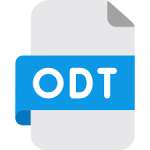.LOGICX File Extension

Logic Pro Project
| Developer | Apple |
| Popularity | |
| Category | Audio Files |
| Format | .LOGICX |
| Cross Platform | Update Soon |
What is an LOGICX file?
.LOGICX files are project files created and used by Logic Pro, a digital audio workstation (DAW) developed by Apple Inc. These files contain a comprehensive record of a user’s work, including audio recordings, MIDI data, virtual instrument settings, and the overall arrangement of a musical composition.
More Information.
.LOGICX files have evolved alongside Logic Pro, with each software version introducing new features and enhancements. The initial purpose of these files was to provide a platform-independent means of saving and sharing complex musical projects, allowing users to collaborate and continue their work seamlessly across different devices.
Origin Of This File.
.LOGICX files originated from the development of Logic Pro, which was initially created by German software developer Emagic. Apple acquired Emagic in 2002, and since then, Logic Pro has been exclusively developed by Apple. The .LOGICX file extension became prominent with the introduction of Logic Pro X, the latest version of the software.
File Structure Technical Specification.
.LOGICX files are essentially packages that bundle various elements of a music project together. They consist of audio files, MIDI data, plugin settings, automation information, and project-specific settings. The technical specifications of .LOGICX files adhere to Apple’s proprietary format, ensuring compatibility and optimal performance within the Logic Pro environment.
How to Convert the File?
Windows:
Converting .LOGICX files on Windows can be achieved through the following methods:
- Install Logic Pro X on Windows:
- Utilize virtualization software like VMware or Parallels to run macOS on your Windows machine.
- Install Logic Pro X within the virtual macOS environment.
- Open the .LOGICX file using Logic Pro X on your Windows system.
- Use Third-Party Converters:
- Explore third-party tools or online converters that claim compatibility with .LOGICX files.
- Follow the instructions provided by the chosen converter to perform the file conversion on your Windows computer.
Linux:
Converting .LOGICX files on Linux involves workarounds due to the native macOS compatibility. Here are potential methods:
- Run Logic Pro X with Wine or PlayOnLinux:
- Install Wine or PlayOnLinux on your Linux machine.
- Configure Wine to run Logic Pro X by following online tutorials or community guides.
- Open the .LOGICX file using Logic Pro X within the Wine environment.
- Explore Linux-Compatible DAWs:
- Investigate Linux digital audio workstations (DAWs) like Ardour or LMMS.
- Check if these DAWs support importing .LOGICX files or if there are any plugins/extensions that enable compatibility.
Mac:
Converting .LOGICX files on a Mac is straightforward, as Logic Pro X is native to macOS:
- Native Opening:
- Double-click the .LOGICX file, and it should automatically open in Logic Pro X if installed.
- Alternatively, launch Logic Pro X and use the “Open” option to select and open the .LOGICX file.
Android:
Converting .LOGICX files on Android requires third-party apps compatible with the file format:
- Transfer the File to Android:
- Transfer the .LOGICX file to your Android device using USB, cloud storage, or other methods.
- Explore Android DAWs:
- Search for digital audio workstation (DAW) apps on the Google Play Store.
- Look for apps that claim compatibility with .LOGICX files or Logic Pro projects.
- Follow the app-specific instructions to import and work with .LOGICX files.
iOS:
Converting .LOGICX files on iOS involves using iOS-compatible digital audio workstations:
- Transfer the File to iOS:
- AirDrop or transfer the .LOGICX file to your iOS device.
- Use iOS-Compatible DAWs:
- Open GarageBand or explore other iOS DAWs that support .LOGICX file import.
- Follow the app’s instructions to open and work with .LOGICX files.
Advantages And Disadvantages.
Advantages:
- Comprehensive Project Storage: .LOGICX files encapsulate all elements of a music project, ensuring nothing is lost or misplaced.
- Collaboration: These files facilitate easy collaboration, as users can share their entire projects with others, preserving the original intent and creativity.
- Cross-Platform Functionality: Logic Pro, including its .LOGICX files, is designed for macOS, but with certain workarounds and third-party tools, users can access their projects on Windows and other platforms.
Disadvantages:
- Platform Limitations: While .LOGICX files can be opened on different platforms, the full functionality and user experience are optimized for macOS, limiting certain features on other operating systems.
- Proprietary Format: The file format is proprietary to Logic Pro, potentially causing issues when trying to use or convert the files with other DAWs.
How to Open LOGICX?
Open In Windows
- Install Logic Pro X on a Windows computer using virtualization or dual-boot setup.
- Use third-party tools or converters that claim compatibility with .LOGICX files.
Open In Linux
- Employ Wine or PlayOnLinux to run Logic Pro X on a Linux system.
- Investigate Linux-compatible DAWs that may support importing .LOGICX files.
Open In MAC
- Double-click the .LOGICX file, and it should automatically open in Logic Pro X if installed.
- Alternatively, launch Logic Pro X and use the “Open” option to select the .LOGICX file.
Open In Android
- Transfer the .LOGICX file to an Android device.
- Explore DAW apps on the Google Play Store, looking for those that claim compatibility with .LOGICX or Logic Pro projects.
Open In IOS
- AirDrop or transfer the .LOGICX file to an iOS device.
- Use GarageBand or other iOS-compatible DAWs that support .LOGICX file import
Open in Others
- Investigate third-party converters or online services that claim compatibility with .LOGICX files.
- Be cautious of potential data loss or feature limitations when using alternative software.











